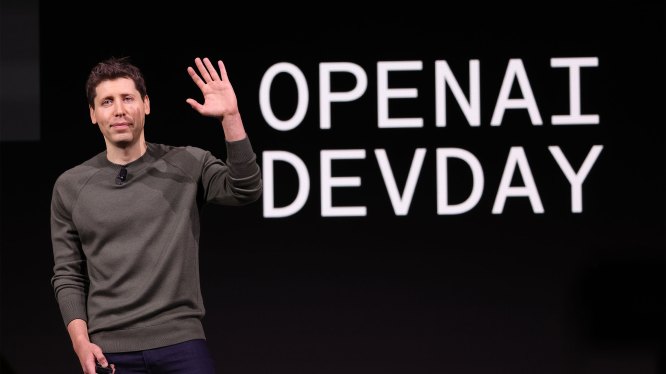ChatGPT Surpasses 100 Million Weekly Active Users, OpenAI Announces New Developments
A Milestone Achievement
OpenAI CEO Sam Altman announced a significant milestone for ChatGPT on Monday at the company’s first developer conference in San Francisco. The service, which was released nearly a year ago, has now reached an impressive 100 million weekly active users. This achievement is a testament to the rapid growth and adoption of the platform.
Record-Breaking User Base
ChatGPT achieved this milestone in a relatively short period, setting a record for the fastest-growing user base. Within just two months of launching, the service had already garnered an estimated 100 million monthly users. This incredible growth is a reflection of the impact and relevance that ChatGPT has made in the market.
Developer Adoption
OpenAI also shared another impressive statistic: over two million developers use the platform, including more than 92% of Fortune 500 companies. This widespread adoption by top-tier developers and organizations underscores the significance and value of OpenAI’s technology.
New Announcements from OpenAI
As part of its developer conference, OpenAI made several new announcements that further solidify its position as a leader in AI innovation.
GPT-4 Turbo: A More Powerful Version
OpenAI unveiled GPT-4 Turbo, a more powerful and less expensive version of its flagship text-generating AI model, GPT-4. This enhanced model is designed to provide improved performance while reducing costs for users.
GPTs: Building Custom Conversational AI Systems
The company also announced GPTs, a way for anyone to build their own version of the conversational AI system. This feature allows developers to create customized versions of ChatGPT, tailoring it to specific use cases and requirements.
Publishing on the GPT Store
OpenAI will soon introduce the ability for users to publish their own versions of the system on a marketplace called the ‘GPT Store’. This platform enables creators to monetize their custom-built AI models, providing a new revenue stream for developers.
APIs and New Tools
In addition to these announcements, OpenAI also introduced several APIs that further expand its capabilities:
DALL-E 3 API: Accessing Text-to-Image Model
OpenAI’s text-to-image model, DALL-E 3, is now available via an API after first being integrated into ChatGPT and Bing Chat. This enables developers to leverage the power of this advanced AI technology.
Assistants API: Building Agent-Like Experiences
The company launched a new API called the Assistants API, which helps developers build ‘agent-like experiences’ within their apps. This tool allows creators to construct intelligent assistants that can call OpenAI’s generative AI models and tools to perform tasks.
Text-to-Speech API: Six Preset Voices and Two Generative Models
OpenAI introduced a text-to-speech API offering six preset voices to choose from and two generative AI model variants. This feature enables developers to integrate high-quality, customizable speech into their applications.
Implications of OpenAI’s Developments
These new announcements and APIs underscore OpenAI’s commitment to pushing the boundaries of AI innovation. As a leader in this field, OpenAI continues to raise the bar for what is possible with its technology.
The introduction of GPT-4 Turbo, GPTs, and the GPT Store will likely have far-reaching implications for developers, organizations, and users alike. The ability to build custom conversational AI systems, monetize them on a marketplace, and access advanced APIs like DALL-E 3 and the Assistants API will undoubtedly drive further growth and adoption of OpenAI’s technology.
In conclusion, OpenAI’s latest developments demonstrate its dedication to advancing the field of artificial intelligence and empowering developers to create innovative applications. As we continue to navigate this rapidly evolving landscape, it is clear that OpenAI remains a key player in shaping the future of AI.




